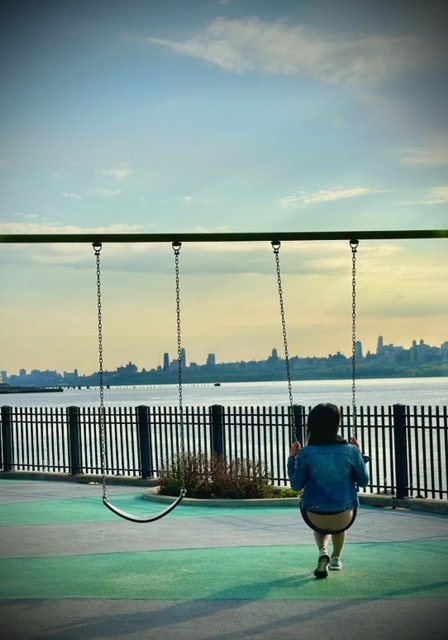Moving Forward
When one loses a spouse, there’s a term you may hear often: ‘moving on’. The phrase isn’t usually embraced by widows because it’s not only impossible, but can also feel a bit insensitive. You don’t move on from the death of your partner.
There’s a connotation that you need to forget what’s happened, that though you’ve lost the person you thought you’d spend the rest of your life with, you need to keep living your life, almost like a pick-up-where-you-left-off strategy. Grief isn't always openly discussed or welcomed in society, and it can make people uncomfortable. Many of us don't know how to handle the situation, so we often say or do nothing.
This summer marks five years since I suddenly lost Patrick. I’ve been fortunate to have lots of support over the years, and no one has actually told me to “move on”, but in my journey, I’ve learned to move forward with my grief and embrace the new life I’ve been forced to lead. This doesn't mean I've forgotten about him or the life we had together, rather I've learned to live with his memory in my new life.
I’m constantly meeting women at various stages of life who’ve lost their spouse: from cancer and illness as their caretaker, from COVID, from sudden death, even suicide. Women who struggle with being a couple of years out and still coping with the loneliness, feelings of loss and what to do next, isolation, and hopelessness. Parents managing the fact that their babies may not even remember their mom or dad.
There’s no timeline to the grief journey; it’s not linear. There’s progress and setbacks, just like any life challenge. I remind women to stop “shoulding” themselves and give themselves grace, to celebrate tiny steps they are taking towards moving forward.
We put a lot of emphasis on trying to feel normal again, but the normal we expect doesn’t exist anymore - we are different people because of what we’ve endured. Everyone manages it differently, shows up differently. Women struggling to shower, not being able to do the things they did with their spouse previously like cooking dinner, eating at the dining table, sleeping in their own bed, yet others pick up quickly and seemingly go on with their day-to-day, externally seeming just fine. That was me….but I felt out of place.
There’s no shame, guilt or judgment whichever way a widow decides to show up. I carried guilt because I felt too ‘high-functioning’ as a young, sudden widow. Did I still have anxiety, trouble sleeping, etc.? Sure I did. At the time I’d felt like something was wrong with the way I was coping, but that was MY journey and I learned to be okay with it, despite my self-judgment. I spoke openly about Patrick because I firmly believe that encouraged my healing. Allowing someone space to talk about their loved one and not balk at the conversation helps them heal.
Even now, having found love again, meaning, and joy, I don’t shy away from the conversations, from continuing to speak to new widows, because it’s become a part of who I am. I don’t mind the label. I know some do. I would not be the same person or be living the same life if not for having become one.
My experience has taught me gratitude, what I want to prioritize in my life, to focus on the positive and what I can control. Most importantly, it’s shown me hope.

